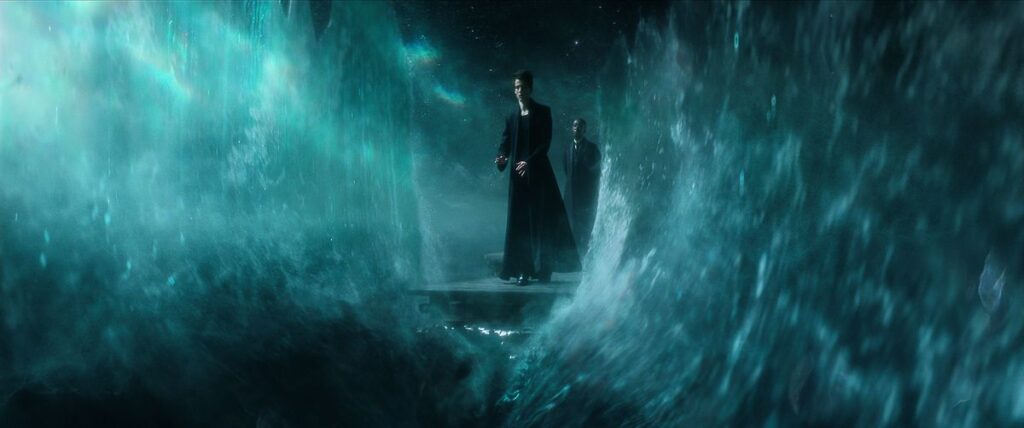One of the more difficult things to keep track of when watching The Sandman is Dream himself. Not necessarily where he is; that’s easy enough. What he can do, on the other hand, is not. For the first half of season 1, Dream is rebuilding — gathering his favorite tools in order to get his powers back up to snuff. What those powers are is never really clear, though. Perplexing as it may be, this isn’t really what The Sandman is about, and being a little lost is OK, because it leads to a more interesting story.
Hearing someone tell you that an annoying thing does not matter isn’t a very satisfying answer, so let’s get into why. As an abstraction personified, Dream both controls and is the collective dreams and nightmares of humanity, which gives him a wide remit to do effectively whatever he wishes, as long as the rationale can be tied to dreams in some way. Essentially, if you are asleep, or even sleepy, you are at his mercy.
However. Dreams are not just things that happens when you sleep. They are also stories, ambitions, hopes. Dream is arguably free to use those as he sees fit as well. His powers are rooted in how we make meaning out of what we do not understand, and inherently undefinable. Basically: One of the Endless can do whatever they want, as long as they can make an argument for it. Unless, of course, they can’t.
Image: Netflix
This is what I mean when I say Dream’s powers don’t matter. The Sandman is not a show with a traditional conflict. Antagonists like the Corinthian may come and go and imperil humans, but the real conflict, the actual existential threat to Dream, is obligation. Being one of the Endless comes with many rules, because it turns out the beings that have the power to manipulate the cosmos are also responsible for keeping it stable. (The Sandman’s first episode shows what happens when they do not, as the world of the Dreaming falls to pieces when Dream is captured, and many who slept the moment he was captured never wake up.) So, like feudal lords, they must figure out how to satisfy their grievances in indirect ways without risking outright war.
The first season of The Sandman only states these rules obliquely: in the decorum that must be observed when Dream calls upon Lucifer in hell, in Dream’s cold and stubborn approach to enforcing his rule, and late in the season in a trap laid for Dream by someone with an ax to grind.
These boundaries aren’t just good because they’re interesting limitations; they’re an important part of what makes The Sandman feel mythic. The Endless are said to be ancient and more powerful than gods because they just are — believing has nothing to do with whether or not you dream, die, or desire. Knowing that they are bound by an ancient and knotty tangle of customs and bound to their word — all of their word — means that their existence is tied to all existence, part of the star-stuff that we can’t explain yet comprises our very bodies.
Dream and the Endless, they are like gravity: always felt but never fully understood, commonplace and magic all at once. Understanding how it works isn’t important; just knowing that it’s there is enough.

